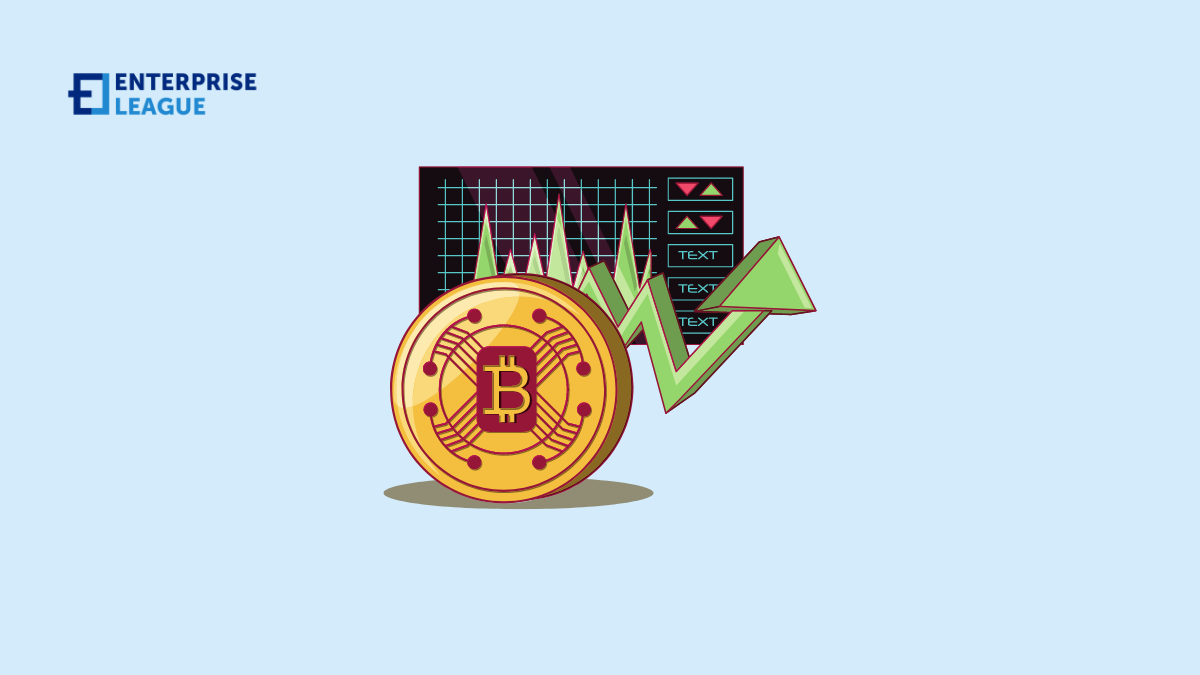Running a software business means handling money from customers who expect things to work smoothly. They sign up, enter their card details, and assume the rest happens without a hitch. On your end, though, payment processing is a whole different story. You need...

10 books about business development to read in 2025
Starting the journey to business development without previous experience can be dauting. However, business development books can be an amazing resource for building a bulletproof business from zero. Morever , reading is one of the best habit to get into early if you want to be a successful entrepreneur so you are on the right track.
Learning about business development is without a doubt a life-long goal and its crucial to be patient and start with one book to get going. Don’t know which business development book is the best for you? Have a look at our “battle-tested” list of books about business development and start putting together the foundations of your success.
Why you should read business development books
Moreover, learning from other successful entrepreneurs about business development can help you save time and money by avoiding many business failures and mistakes. Take the advice from Oliver Wendell Holmes, who once said “Learn from the mistakes of others – you can’t live long enough to make them all yourself!”
10 must-read books about business development
After some in-depth research, we’ve made this list of books about business development to help you get started easily without getting stuck in “analysis paralysis”.
So, grab a cup of coffee, make yourself comfortable, and start learning from those who “walked the walk”.
The Lean Startup
The book “The Lean Startup” gives a unique revolutionizing approach to how companies are founded globally.
According to Eric Ries, a startup is a company dedicated to innovation in the face of significant uncertainty. This is true whether only one person works in a garage or has several seasoned employees in a Fortune 500 company’s boardroom. They are all on a mission to navigate the cloud of uncertainty and discover a successful path to an enduring business that binds them together.
The approach in “The Lean Startup” encourages companies to use both money and human creativity. The gist of the book gives knowledge to all business owners and entrepreneurs to iteratively test their ideas and make adjustments to their business plans before it’s too late.
Blue Ocean Strategy
It’s by far the best-selling book about what makes a successful business plan. Businesses have faced competition from the beginning of the industrial era and they have had a conflict about market share, uniqueness, and competitive advantage.
In their book, W. Chan Kim and Renee Mauborgne make the case that strong rivalry simply creates competitors fighting for a shrinking profit margin. The authors argue that creating untapped markets, “blue oceans” with potential for growth based on a review of 150 strategic decisions made over more than 100 years in 30 different sectors, is the key to long-term success instead of fighting rivals.
The Blue Ocean Strategy outlines strategies and tools that any company has to use to identify and provides a thorough approach to eliminating rivalry. This business devolopment book lays out a risky new plan for ruling the future and challenging traditional strategic thinking.
Zero to One
Our era’s big secret is that there are still uncharted areas to explore and innovative innovations to build. The author Peter Thiel, a well-known investor, and entrepreneur explains in his book “Zero to One” how we might develop original plans to create new goods.
In the book, Thiel begins with the counterintuitive hypothesis that, despite our obsession with mobile devices, we are experiencing a period of technological stagnation. Although Silicon Valley and computers are by no means the only avenues of progress, information technology has advanced swiftly. But also advancement is achievable in any business area or industry.
This book teaches us about the most important skill that every leader must master. That skill is the ability to think for oneself. When you perform a new action, you move from zero to one.
Never Split the Difference: Negotiating as if your life depended on it
The author behind this book is a former FBI hostage taker who writes about always-effective methods of negotiating that may be used in any situation.
After working as a police officer in Kansas City, Missouri’s challenging communities, Chris Voss joined the FBI. During his career, he dealt with terrorists, gang bosses, and bank robbers while working as an abduction negotiator there. All these experiences inspired him to write the book “Never Split the Difference.”
The book takes you inside Voss’s high-stakes bargaining environment and exposes the nine essential concepts that helped Voss and his colleagues prevail when it mattered the most.
Given that it’s based on the real-life experiences of an intelligence expert at the top in his field, the book’s lessons will give you the upper hand in any discussion.
Never Eat Alone
In the book “Never eat alone”, the author Keith Ferrazzi describes how having open communication with other people will help you to grow your network. Early in life, Ferrazzi understood that what sets exceptionally successful people different from everyone else is their capacity to harness the power of connections for the advantage of all partakers.
In the book “Never Eat Alone,” Ferrazzi describes the exact procedures and inner attitude he uses to communicate with the thousands of coworkers, friends, and associates on his Rolodex. People he has helped and who have benefited him.
Ferrazzi’s way of communicating with the outside world is based on philanthropy and revolves around connecting friends with other friends. He distinguishes the genuine relationship-building approach associated with “networking.” Then he transforms his approach to interacting with people into a practical one.
How To Win Friends and Influence People
If you look for a book that will give you the necessary knowledge about how to speak with confidence and win in every conversation, then, the book “How To Win Friends And Influence People” is for you.
The employment status or career you currently have may be improved if you know how to communicate with others and have their support. With an excellent verbal skill set, you can take any situation to your advantage.
By reading this book you will learn how to improve your communication abilities in both your professional and personal life. It will show you how to influence people without offending them and will teach you how to persuade them through six different methods.
The principles of Dale Carnegie that are written in the book are still relevant today and will help you reach your maximum potential in the demanding and cutthroat modern world.
The Sumo Advantage
Another book on our list is “The Sumo Advantage” by Bernie Brenner. The founder of Rollick gave us this extraordinary book about business development where you can learn how to build and maintain business-related projects that will advance your company.
Through the chapters of this book, you’ll learn how to plan and build the business development layer for your company to boost growth and sales initiatives. You’ll discover how to recognize potential partners and convince them to work with you in a win-win scenario.
Additionally, you’ll begin to realize the prerequisites for a successful relationship and learn how to negotiate for them. And finally, you’ll learn how to utilize each strategic connection and spot the best company development prospects.
Give and Take
The book “Give and Take” emphasizes how effective networking, teamwork, influence, negotiation, and leadership skills are comparable.
The author Adam Grant uses his study to show the remarkable impact that different types have on achievement. While some donors are exploited and burned out, the majority experience remarkable success in many different fields.
This book explains how one of America’s top networkers built his contacts and why the person who created one of the most well-known television programs ever struggled for years in secrecy. How a basketball executive who made several bad trades turned his club into a winner and how, without ever looking at Enron’s financial documents, could have predicted the collapse of the corporation four years in advance.
The gist of the book shows us a method for achievement that has the power to alter not only certain individuals or groups but also entire organizations and entire communities.
Hacking Growth: How today’s fastest-growing companies drive breakout success
According to Silicon Valley “Hacking Growth” gives one of the most well-known business tactics you can ever find. In the book, you can find unbelievable stories about the beginnings of the top IT companies that rule the world.
LinkedIn was an exclusive network for C-suite executives, Uber was a scrappy startup that couldn’t compete with the Goliath that was New York City Yellow Cabs, and Facebook was the unfortunate stepbrother of MySpace. The best-kept secret among couch surfers and travelers is Airbnb. Only bakers and artisans used the niche website Pinterest, and so on.
The book walks readers through creating and putting into practice their own original growth hacking plan. It acts as an accessible and useful toolkit that groups and companies in a variety of industries may utilize to increase their consumer base and market share.
Built to Last
The list of the 10 books about business development finishes with “Built to Last.” This book doesn’t focus on visionary leaders with charisma and It has nothing with futuristic product ideas or futuristic market insights. But it goes beyond simply having a company vision.
This book is about forward-thinking businesses, and the authors Jim Collins and Jerry Porras debunk myths and offer new perspectives, and helpful advice to individuals who want to create businesses that will withstand the test of time. They look at businesses as start-ups, medium businesses, and huge enterprises from the very beginning to the present.
Built to last offers a master plan for creating businesses that will thrive far into the twenty-first century and beyond. The book has hundreds of specific examples and is structured into a cogent framework of useful concepts that can be utilized by managers and entrepreneurs at all levels.
Conclusion
More must-read stories from Enterprise League:
- Find out all the things that make messy people smarter.
- Find out how to get more customers for your business in a unquie way.
- Innovative small business growth tips that will take you to the next level.
- Find out everything you need to know about the 10 Ds of entrepreneurship.
- Have a look at the best countries to start a business as a foreigner.
Related Articles
The 9 Best Payment Processing Services for SaaS
Building a U.S. Real Estate Portfolio: Why Beverly Hills Should Be Your First Step
The United States has long been a magnet for real estate investors seeking stable returns and prestige. Among its many luxury markets, one name consistently stands out: Beverly Hills. Known worldwide for its glamour and exclusivity, it represents more than just a...
Top 7 SEO Services for Law Firm Websites
In the legal sector, digital visibility is the primary determinant of case volume. For attorneys, implementing a specialized SEO service for Law Firm website is a fundamental requirement for operational stability. Generalist marketing strategies frequently fail in...
What’s the Best Place to Buy a Dump Trailer in PA?
Dump trailers are a worthwhile investment for many service-oriented businesses. In Pennsylvania, where real estate markets are hot, home improvement activity is high and the agriculture industry is strong, building your fleet to clear out construction sites, houses,...
What’s the Best Ceramic Car Wash Soap? 5 Top Options
Hydrophobic automotive coatings have moved from a premium upsell to an expectation. Customers seek deep gloss, instant water beading and long-term protection, requiring car wash operators to use chemistry that supports rather than harms protective finishes....







![Understanding the Bitcoin economy: A brief guide [2025]](https://enterpriseleague.com/blog/wp-content/uploads/bitcoin-economy.png)







